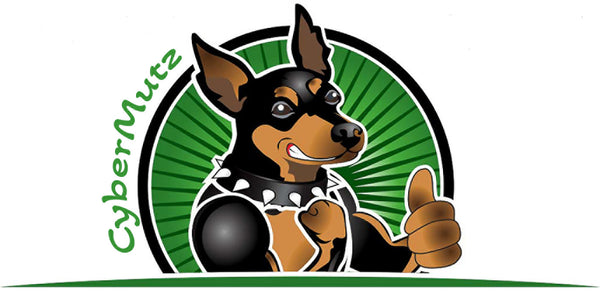
Rat Terrier
Share
Overview:
• Origin: Rat Terriers were developed in the United States in the early 20th century as farm dogs and hunting companions. They were bred to control rodent populations and assist in various tasks on farms. Their ancestry includes breeds like the Fox Terrier, Manchester Terrier, and various other terriers and working dogs.
• Size: Rat Terriers typically weigh between 10 to 25 pounds and stand about 10 to 18 inches tall at the shoulder, depending on the specific type (Standard or Miniature).
• Lifespan: 12-18 years.
Appearance:
• Coat: Rat Terriers have a short, smooth coat that comes in various colors, including white, black, brown, and combinations with spots or patches. Their coat is low-maintenance and requires minimal grooming.
• Body: They have a well-proportioned, muscular body that allows for agility and speed. Their athletic build makes them excellent hunters and active companions.
• Head: Rat Terriers have a broad head with a slight stop, expressive eyes, and long ears that can be either erect or semi-erect.
Personality and Temperament:
• Energetic and Playful: Rat Terriers are lively and require regular exercise to stay healthy and happy. They enjoy playing fetch, going for walks, and engaging in various activities that stimulate their minds and bodies.
• Intelligent and Trainable: They are highly intelligent and eager to learn, making them relatively easy to train. Consistent training and positive reinforcement techniques work well with this breed.
• Affectionate and Loyal: Rat Terriers are known for their strong bonds with their families. They are affectionate, enjoy cuddling, and thrive on companionship.
• Alert and Protective: They are naturally alert and can make excellent watchdogs. They may be wary of strangers but are generally friendly once introduced.
Health and Care:
• Exercise Needs: Rat Terriers need regular exercise to channel their energy and prevent boredom. Daily walks, playtime, and mental challenges are essential for their well-being.
• Common Health Issues:
• Hip Dysplasia: A genetic condition that can affect mobility and cause pain.
• Patellar Luxation: A condition where the kneecap dislocates, which can cause discomfort and lameness.
• Dental Issues: Due to their small size, dental care is important to prevent periodontal disease.
• Grooming: Their short coat requires minimal grooming, with occasional brushing to remove loose hair. Routine dental care, nail trimming, and ear cleaning are also important.
Interesting Facts:
• Versatile Workers: Rat Terriers excel in various roles beyond being pets, including hunting, agility competitions, and therapy work due to their intelligence and agility.
• Diverse Lineage: Their mixed ancestry contributes to their adaptability and diverse appearances, with different Rat Terriers displaying varying traits.
Temperament with Kids and Other Pets:
Rat Terriers are generally good with children and can be playful and affectionate companions. They often enjoy interactive play and can form strong bonds with kids. Socialization from a young age helps them get along well with other pets, although they may have a strong prey drive due to their hunting background.
Training and Socialization:
Early training and socialization are essential for Rat Terriers. They benefit from exposure to various environments, people, and pets to develop good behavior and confidence. Consistent, positive reinforcement techniques work well, as they respond well to praise and rewards.
Exercise and Activities:
Rat Terriers thrive on physical and mental activities. Engaging them in fetch, agility training, and interactive toys helps meet their exercise needs and keep them entertained.
Summary:
CyberMutz.com (Dog-Themed Apparel & Accessories)
“CyberMutz.com – Explore a unique collection of dog-themed apparel, accessories, and gifts for pet lovers. Shop stylish, high-quality designs featuring your favorite dog breeds!” Category Page Descriptions: Dog Breed T-Shirts: “Show off your love for dogs with our exclusive breed-themed T-shirts. From German Shepherds to Chihuahuas, find high-quality, comfortable tees celebrating your favorite pup!” Dog Breed Pet Tank Tops: “Keep your furry friend stylish and comfortable with our dog breed-themed pet tank tops. Perfect for small and large dogs, these unique designs are a must-have!” Funny Dog-Themed Apparel: “Love dogs and humor? Our funny dog-themed apparel blends style with witty canine-inspired designs. Shop now for T-shirts, hoodies, and more!” Personalized Dog Merchandise: “Customize your dog lover’s gear with our personalized pet-themed apparel and accessories. Create a one-of-a-kind look for yourself or a perfect gift for a fellow dog enthusiast!”
CyberPussyKatz.com (Cat-Themed Apparel & Accessories)
“CyberPussyKatz.com – Celebrate your love for cats with our premium collection of feline-inspired apparel and accessories. Purr-fect designs for every cat lover!” Category Page Descriptions: Cat Breed T-Shirts: “Showcase your favorite feline friend with our stylish cat breed-themed T-shirts. From Maine Coons to Siamese, find the perfect tee for cat lovers!” Funny Cat-Themed Apparel: “Express your quirky side with our funny cat-themed T-shirts, hoodies, and more. Pawsome designs for those who love cats and humor!” Personalized Cat Merchandise: “Make it personal with custom cat-themed apparel and accessories. Create a unique gift or a special piece just for you!”
CyberMunkiez.com (Monkey-Themed Apparel & Accessories)
“CyberMunkiez.com – A fun collection of monkey-inspired apparel and accessories. Perfect for primate lovers who enjoy bold, playful, and unique designs!” Category Page Descriptions: Monkey-Themed T-Shirts: “Go bananas over our monkey-themed T-shirts! Whether you love capuchins, chimps, or gorillas, our designs bring out your wild side.” Funny Primate Apparel: “Add a touch of humor to your wardrobe with our hilarious monkey and ape-inspired apparel. Great for animal lovers and jungle enthusiasts!” Custom Monkey Merchandise: “Make it yours! Personalize your favorite monkey designs on T-shirts, hoodies, and more for a one-of-a-kind look.”
